Amidst ground-breaking movies like, 1917, Joker, The Irishman and even the war comedy JoJo Rabbit, Bong Joon-ho’s ‘Parasite’ ended up re-shaping the platform of Oscars. Becoming the first foreign-language film to ever win the Best Picture! Not just that, a win for Best Original Screenplay and Best Director.
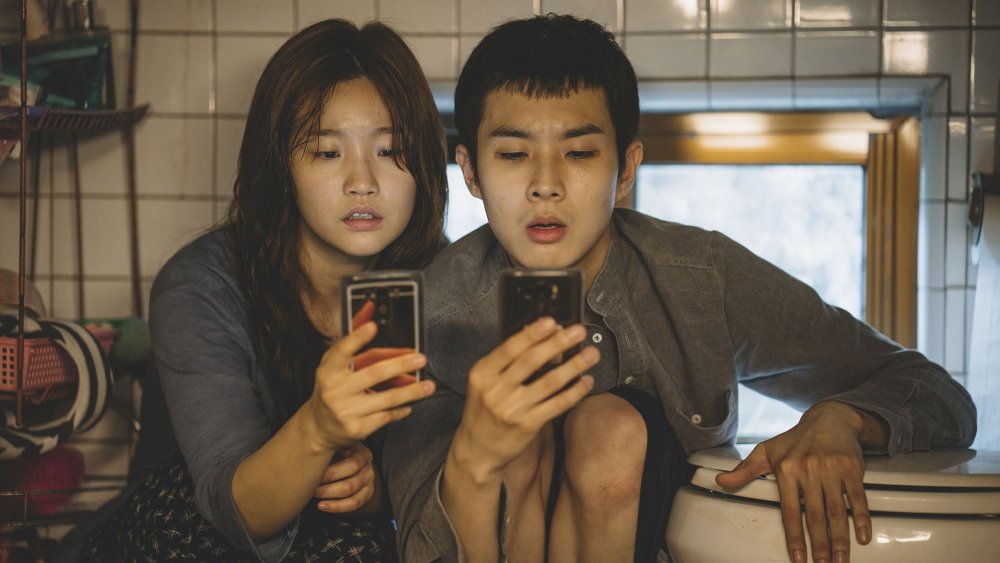
But the Oscar win should not completely blind us. We mustn’t stop at just one film because there is so much more to the ‘Cinema of South Korea’ that might just hook you for life!
Besides Parasite, the thought of Korean films can trigger our memory to reconnect with the 2016 zombie-themed movie, ‘Train to Busan‘. Before you hold any prejudices, trust me, this movie isn’t a zombie-apocalypse-cliche. The movie surpasses the basic!
This action-horror film is an allegory of the class rebellion and moral polarisation that prevails while subtly touching on a sensitive relationship between father and a daughter.
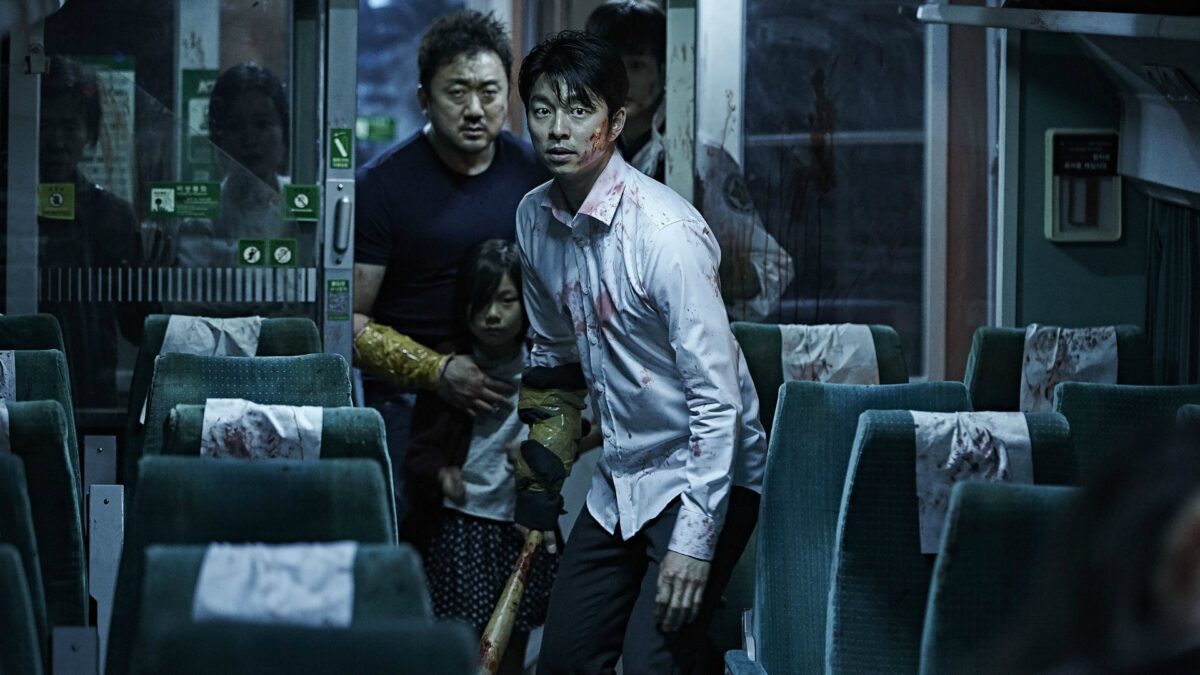
The movie focuses on a workaholic father, Seok-wu (Gong Yoo), that takes his estranged daughter Su-an (Kim Su-an) to visit his ex-wife on the KTX high-speed train to Busan. Unlike a Hollywood zombie-movie that portrays a hero in charge, selflessly helping out the needy; Seok-wu is the exact opposite. An elitist who is straight-up selfish and pathetic in his mannerisms with his self-preserving instincts is seen in a pessimistic role.
More conveniently describing the privilege of the ‘Haves’ over the class of ‘Have-nots’. One concept that the film constantly revisits to depict the snobbish lifestyle in the Korean society. Despite this cut-throat attitude, the ‘Train’ has some warm characters to relate to. The high-school sweethearts that stay loyal till the very end, two deeply affectionate elderly sisters and the tramp. A villain arises in the form of a middle-aged corporate sloth, Kim Eui-sang who spreads his cowardly mindset like a contagious disease amongst the train passengers, showcasing another concept within the movie, the power to incite callous behaviour within the mob.
Because during a catastrophe, a mob becomes sheep. This is illustrated beautifully in this movie.
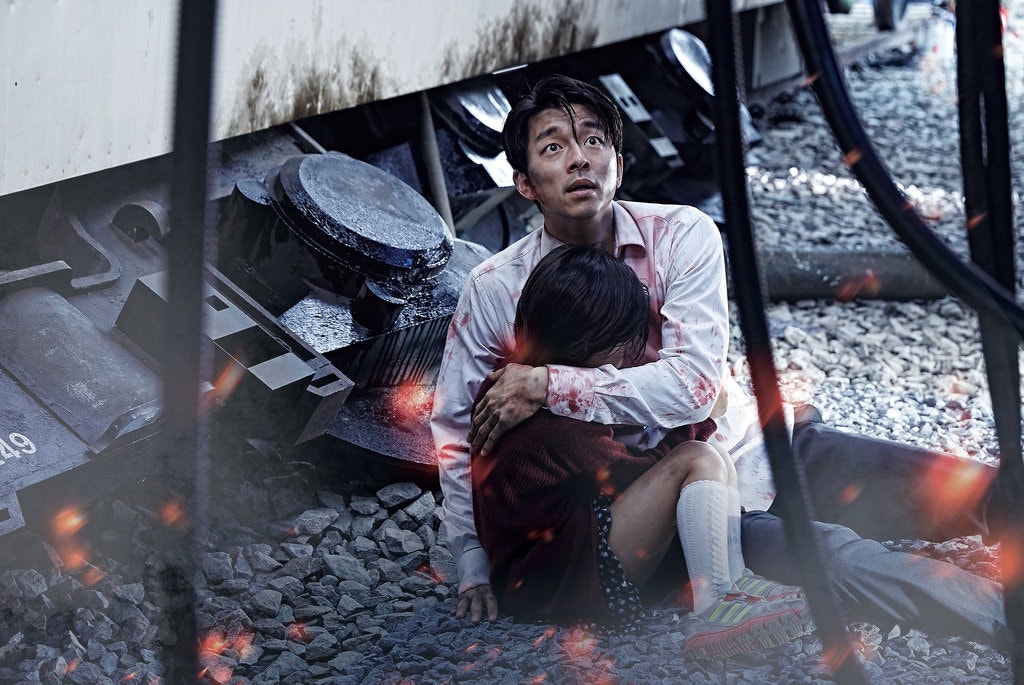
Though such impure characters appear on screen, it also show a ray of hope as the protagonist slowly reforms into a better human being and embraces emotional connections. After all, what sets a zombie and a human being apart? Empathy!
The production team has outdone themselves. Korean block-busters don’t seem to shy away from flaunting their technical brilliance. The excellent use of special effects to enhance the gory-ness in the film, as well as the edit by Yang Jin-mo who seems to add suspense to each shot creating disorientation and uneasiness within the audience.
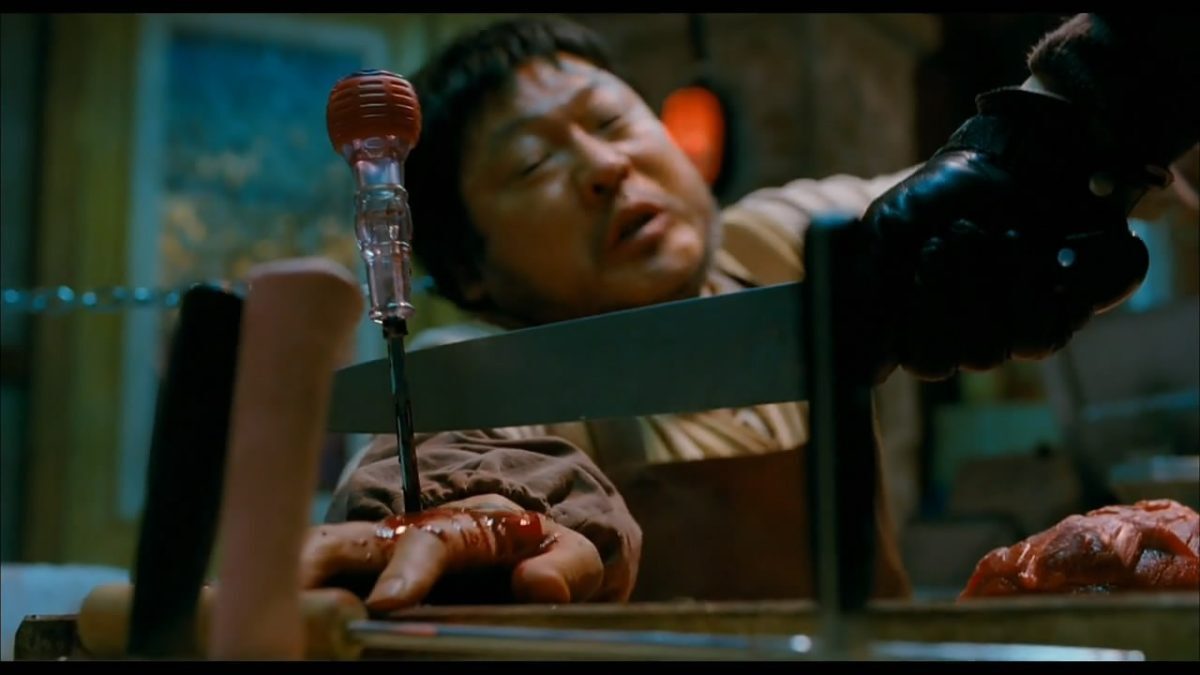
Grisly, blood-thirsty and brutally honest is the type of plot many Korean films promise. If the John-Wick films are your idea of a revenge, then you have definitely missed the epitome in this genre. ‘I saw the Devil’ that released exactly a decade ago has set the bar so high, leaving exactly zero films worth comparing with it.
Comprising of an unpredictable and violent story line that can make you sick to your stomach, this movie features a special government agent, Soo-hyun who has no mercy, blood filled with rage, indulges in a vicious cycle of torturing the psychopath, Kyung-chul who killed his lady-love in a ruthless manner. A school bus driver by day and a heartless-serial killer by night, Kyung-chul is on a murdering spree. His target, pretty faces and just pretty faces.
The scenes in this movie will give anyone the chills. There is no fear of the ghost but the man himself, Kyung-chul whose goriest actions and the diabolical look in his eyes is all that it takes for ‘N-number’ of sleepless nights. The movie doesn’t stop at just representing the whims of a serial-killer, it rather questions the audience, ‘How far would you go to seek revenge?’ Or better rephrased, ‘At what cost?’

The protagonist Soo-hyun is hungry for revenge, some believe that the end is justified and many more remain with mixed feelings- despair topped with a pinch of satisfaction. The thriller engages in a to-and-fro gruesome encounters between the men, the protagonist, and the serial killer. Each time both of them are impacted by severe damages but only one remains deranged forever. That’s the burning concept of this film. If you haven’t stumbled upon this masterpiece, well its never too late!

When you think that the Korean film industry is just ghastly and uneasy to watch, ‘A Taxi Driver’ convinces you its not. This film industry has multiple facets and once you become the explorer, you will be hitched for more. The director Jang Hun had the courage to discuss a very sensitive piece of the history. ‘A Taxi Driver’ focuses on a taxi driver who is a talkative if harsh, widowed father to an 11-year-old, highly impatient during traffic jams resulting in protests in Seoul. Basically everything that accounts to a normal human.
The movie takes an abrupt turn when Hinzpeter, a German TV journalist steps into the taxi. The trip to the locked down city of Gwangju marks the historical events in Korea. When they arrive, the 2 of them witness a huge street demonstration affected by tear gas and military invasion. The determined Hinzpeter works to smuggle footage, exposing the dictatorship brutality prevalent in Korea to his German news organisation while the protagonist, our taxi driver is put in the spot to realise the atrocious nature of the government.
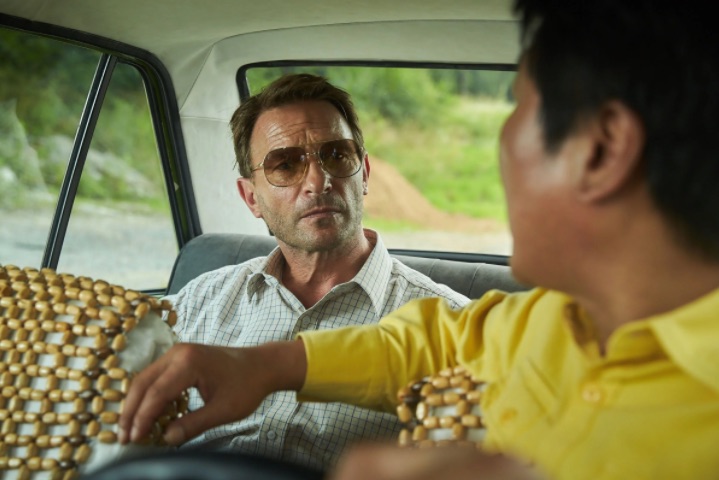
There are many films that have actively discussed the rebellious nature of the characters fighting for freedom, but this movie paints the beautiful relationship the unfolds between the reporter and the taxi driver. Another interesting factor is that no one knows the name of this taxi driver in the film, he remains the simple taxi driver he is.
According to historical records, hundreds of taxis mobilised themselves in a parade to support citizens and rescue the inured ones. Known as the ‘Drivers of democracy’, their role is highlighted in the movie as the power of solidarity.
There is so much to comprehend in the world of cinema and it is imperative to break the language barrier and watch such pioneering cinema that echos strong sentiments of characteristics. After the Oscar win of a Korean film, there has been significant rise in appreciating other Korean films. But the industry needs more voices to be on par with Hollywood cinema that dominates the culture of film-making, even today.
Korean films have long achieved this goal and they deserve the spotlight from the audience!
Subscribe to FIB’s Weekly Alchemy Report for your weekly dose of music, fashion and pop culture news!







